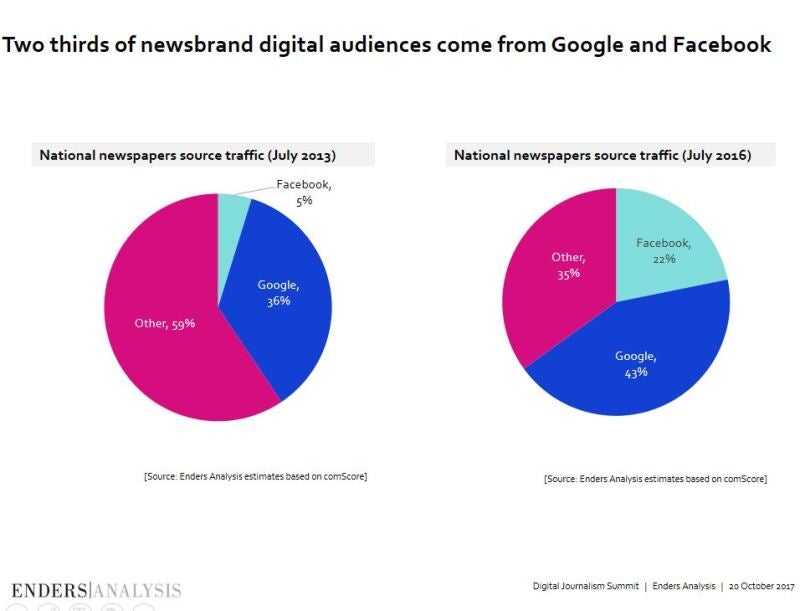
Facebook’s experiment at clearing everything but content from friends and sponsored posts from its main news feed will alarm publishers.
The social media giant is already the single biggest source of traffic for many news publishers, as Douglas McCabe from Enders Analysis revealed at last week’s Digital Journalism Summit.
Overall Facebook is reckoned to account for 22 per cent of the traffic to national newspaper websites (but for some the proportion is far higher).

The Facebook experiment saw the creation of a new feed called Explore which enabled users to browse stories they were interested in, as the BBC reports.
In Sri Lanka, Bolivia, Slovakia, Serbia, Guatemala, and Cambodia the main newsfeed was cleared of everything except content from friends and sponsored posts.
This effectively means that if news publishers in those countries want their content to be where the eyeballs are on Facebook they will have to pay for the privilege.
Facebook has said it has no current plans to roll out the experiment into other countries.
But could it be a shot across the bows of grumbling news organisations around the world?
Facebook is facing increasing complaints that it makes billions off the back of professionally-produced journalism but shares little with news publishers.
Could this be Facebook showing that it can survive without the news industry and has a back-up revenue model in the wings?
Ultimately it shows that any publisher who’s business model is dependent on revenue from Facebook needs to change fast, because the US giant can change its terms whenever it likes.
The bizarre thing about this move is that it comes as Facebook has been seeking to charm journalists and persuade is that it is on our side.
Facebook is currently looking at implementing new technology which will help publishers sell subscriptions on its site. And it claims to be returning more than $1m dollars a day to news publishers via revenue shares on advertising.
If those are the carrots, then the Explore experiment shows that Facebook is also carrying a big stick.
Email pged@pressgazette.co.uk to point out mistakes, provide story tips or send in a letter for publication on our "Letters Page" blog

